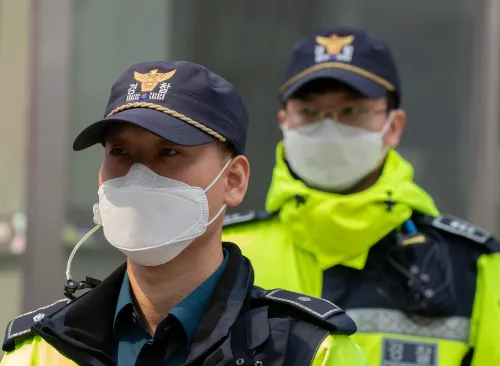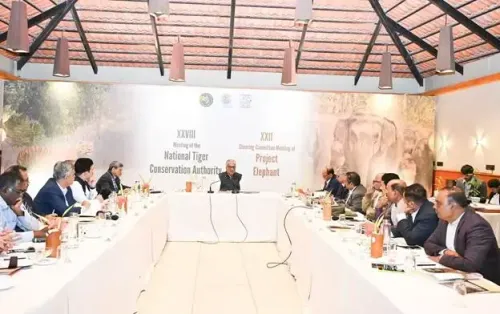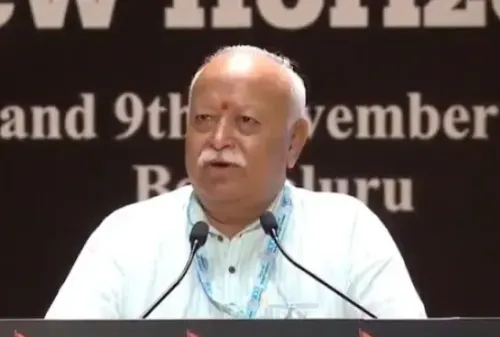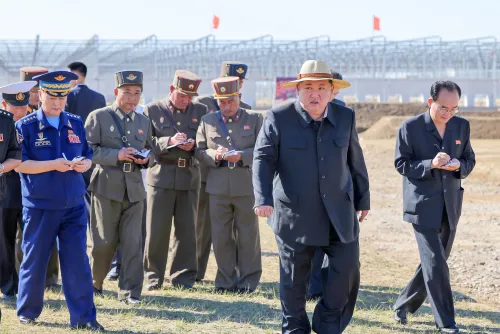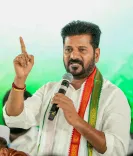Will US Sanctions Have a Major Impact on Russia's Economy?
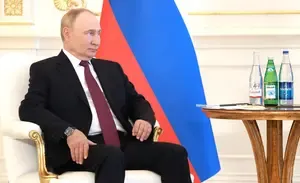
Synopsis
Key Takeaways
- Putin believes US sanctions will not greatly affect Russia's economy.
- He emphasizes the importance of continued dialogue between the US and Russia.
- The sanctions are seen as an unfriendly act that could strain relations.
- Global oil prices may be affected due to these sanctions.
- Putin issued a serious warning regarding potential military responses.
Moscow, Oct 24 (NationPress) In response to the recent sanctions imposed by the US on Russia's major oil corporations, Russian President Vladimir Putin stated that these measures will have minimal effects on the Russian economy, characterizing them as attempts to exert pressure on Moscow.
"No self-respecting nation ever acts under duress," Putin remarked during a press conference on Thursday.
"These sanctions are indeed significant for us, that much is evident. They will yield certain repercussions, yet they will not substantially affect our economic stability," he elaborated.
He described the sanctions as an "unfriendly act" that "does not enhance Russia-U.S. relations, which have only recently begun to mend".
During his discussions with U.S. President Donald Trump, Putin cautioned that these sanctions could influence global oil prices, including those in the United States.
Putin noted that in his first term, President Trump had enacted the highest number of sanctions against Russia.
According to the Russian leader, these restrictions encompass both political and economic dimensions.
On Wednesday, the U.S. government imposed sanctions on Russia's two largest oil firms, Rosneft and Lukoil, marking the first such action since Trump's return to office.
Initially, Trump sought to strengthen relations with Russia but has grown increasingly frustrated by Putin's unwillingness to agree to a ceasefire, expressing dissatisfaction that their peace negotiations were going "nowhere".
Putin warned that any potential Tomahawk missile strike on Russian soil would provoke a "serious, if not overwhelming" response.
Although the U.S. has not permitted Ukraine to utilize these missiles, Putin remarked that Kyiv's attempts to gain approval reflect an "escalation attempt".
"If such weapons are deployed against Russian territory, the repercussions will be grave, if not overwhelming. They should consider that," he stated.
Despite the sanctions and the postponement of a planned meeting with Trump, Putin expressed a commitment to maintaining "dialogue".
He also reflected on the canceled meeting with Trump, which was supposed to take place in Budapest, Hungary, in the upcoming weeks.
Stressing the importance of ongoing diplomacy to resolve the conflict in Ukraine, Putin said, "Dialogue is always preferable to confrontation, disputes, or, even worse, war."
"This is why we have consistently supported continued dialogue and continue to do so now," he added.
"It would be a miscalculation for both me and the U.S. President to treat this lightly and depart from the meeting without a productive outcome," Putin emphasized, highlighting that the meeting was initially proposed by the U.S.
Washington's sanctions against Russian oil giants were announced following the Kremlin's refusal to heed calls for an immediate ceasefire in its ongoing conflict with Ukraine.
Tomahawk missiles are generally launched from ships or aircraft, with the launching platform programming the missile prior to launch with target coordinates, routing, flight profile, and digital terrain maps. Strategic launch platforms also input arming codes, enabling the missile to navigate using a combination of inertial and satellite systems.
The U.S. President had delayed imposing new sanctions against Russia for several months, but his patience waned after the collapse of plans for a fresh summit with Putin in Budapest.
Even following the new sanctions and the postponement of the summit, Putin appeared to remain receptive to dialogue.
The U.S. Treasury Department stated that the measures aim to "limit Russia's ability to fund its aggression."
Ukrainian President Volodymyr Zelensky welcomed the sanctions, viewing them as a step that would "weaken the Kremlin's capacity to wage war."
While meeting with NATO Secretary General Mark Rutte at the White House on Wednesday, Trump expressed hope that the "war will be resolved."
Trump also acknowledged that his previous discussions with Putin had not yielded any progress.
"Every time I converse with Vladimir, the talks are positive, yet they lead nowhere. He is engaged in a war. It's a situation involving two highly capable sides, and that's the nature of warfare. You can never predict outcomes in war, but I believe it's time for a resolution," he asserted.
On Tuesday, Trump canceled his proposed meeting with Putin in Budapest, stating he did not wish to participate in a "wasted meeting."
"We canceled the meeting with President Putin. It simply didn't feel right. It didn't seem like we would reach the necessary outcomes. Thus, I called it off, but we will reschedule in the future," he remarked.


